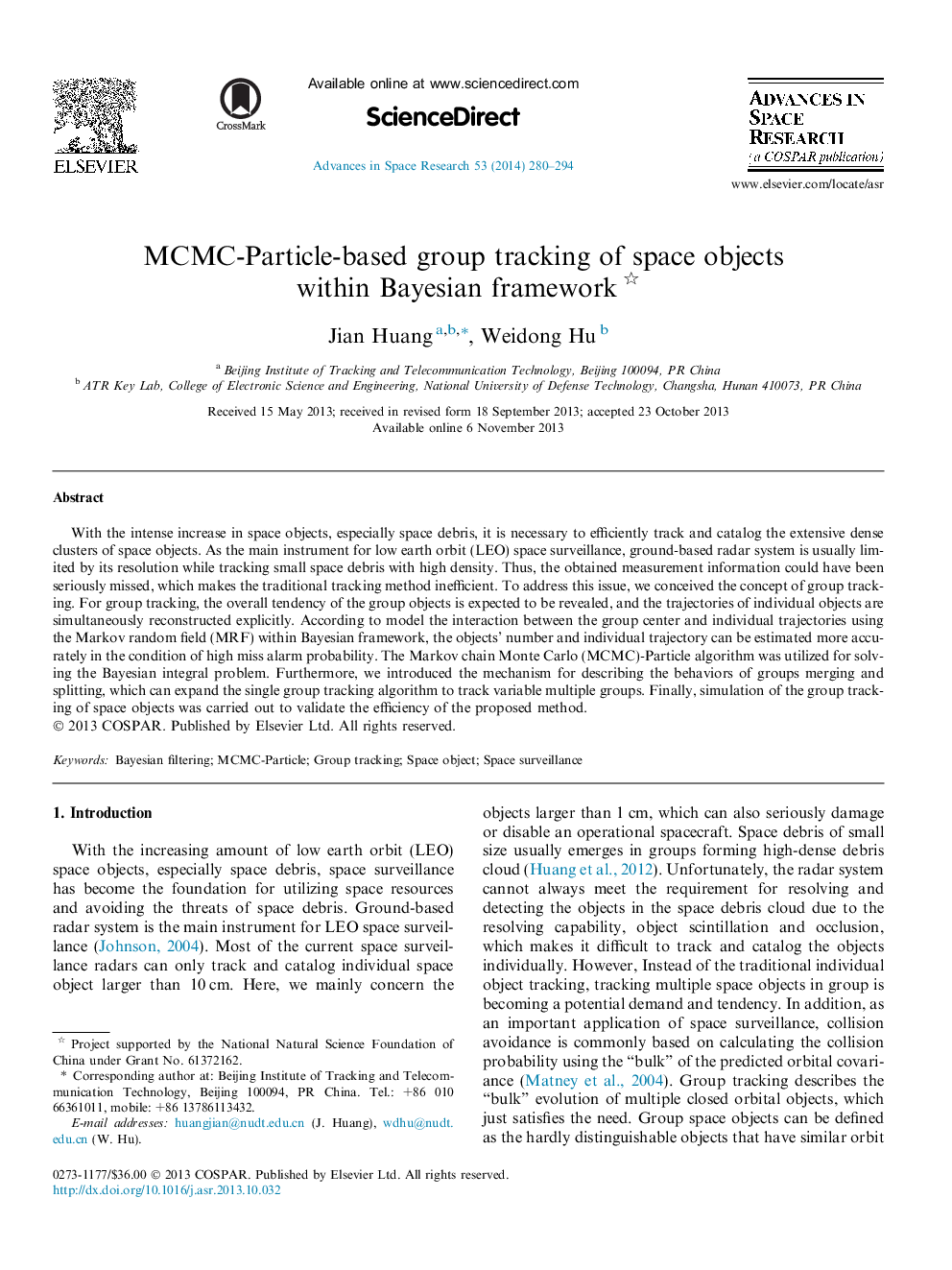| Article ID | Journal | Published Year | Pages | File Type |
|---|---|---|---|---|
| 1764285 | Advances in Space Research | 2014 | 15 Pages |
Abstract
With the intense increase in space objects, especially space debris, it is necessary to efficiently track and catalog the extensive dense clusters of space objects. As the main instrument for low earth orbit (LEO) space surveillance, ground-based radar system is usually limited by its resolution while tracking small space debris with high density. Thus, the obtained measurement information could have been seriously missed, which makes the traditional tracking method inefficient. To address this issue, we conceived the concept of group tracking. For group tracking, the overall tendency of the group objects is expected to be revealed, and the trajectories of individual objects are simultaneously reconstructed explicitly. According to model the interaction between the group center and individual trajectories using the Markov random field (MRF) within Bayesian framework, the objects' number and individual trajectory can be estimated more accurately in the condition of high miss alarm probability. The Markov chain Monte Carlo (MCMC)-Particle algorithm was utilized for solving the Bayesian integral problem. Furthermore, we introduced the mechanism for describing the behaviors of groups merging and splitting, which can expand the single group tracking algorithm to track variable multiple groups. Finally, simulation of the group tracking of space objects was carried out to validate the efficiency of the proposed method.
Keywords
Related Topics
Physical Sciences and Engineering
Earth and Planetary Sciences
Space and Planetary Science
Authors
Jian Huang, Weidong Hu,
